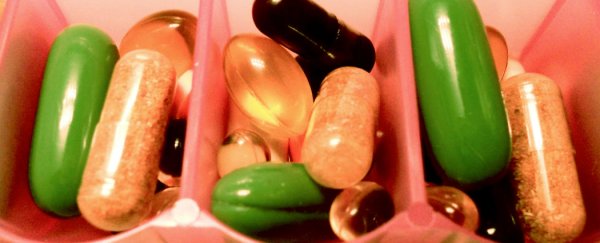Most of us have been there - sitting patiently while the doctor is scribbling out a prescription along with specific instructions on how to take the medication: "Three times a day, with food" or "Two capsules on an empty stomach", for example. With over-the-counter drugs, sometimes it's easy to forget what the label says about food.
But why is it important, and does the presence of food prevent drugs from kicking in sooner? Turns out it depends on the drugs - and sometimes on the food, too.
Given that most medications are swallowed and end up in the same digestive tract as the burger you had for lunch, it makes sense that drugs and food would have a specific relationship. When we have a meal, several things happen in the gut - more blood flows to the area, bile is released from the liver, and the cells of the stomach lining pump out gastric acid to break food down into compounds the body can use for its various purposes.
Because of these physiological changes, it's important to keep track of what else besides food and drink we put in the stomach, and when. For example, ibuprofen and other non-steroid anti-inflammatory drugs (NSAIDs) are best taken with food.
This is because NSAIDs inhibit the body's production of prostaglandins - compounds that promote inflammation - but unfortunately, prostaglandins in the gut also protect the stomach lining from your own stomach acid. As you can imagine, a tablet that prevents this protective function can easily lead to stomach irritation, particularly with regular use. Taking NSAIDs with a cushioning meal helps to avoid this problem, although it may somewhat slow down drug absorption.
But protection of the stomach lining certainly isn't the only reason for why you should take some medications with food. There are drugs - several HIV antivirals for example - that are best absorbed into the bloodstream when the environment in the gut is particularly acidic. Taking these with food or even washing them down with an acidic drink, such as a Coke, is therefore the recommended approach. Yet other medicines dissolve really well in fats or bile acid, and are therefore also best taken with meals.
So what about the ones taken on an empty stomach? Firstly, 'empty stomach' with regards to medication usually means at least an hour before a meal, and at least 2 hours after one. If you are supposed to take meds without food, it may be because the chemical compound easily degrades in an acidic environment - the common antibiotic penicillin V is one of these.
Alternatively, the medication might be affected by the presence of calcium, or iron, or some other nutrient. Unless you know the exact chemical make-up of your meal, you're better off taking these meds without food, as that will give you the best chance to reap the therapeutical benefits.
Last but not least, health experts also advise that consistency is vital - whether you take your meds with food or without, a consistent routine can help get the most out of them.
